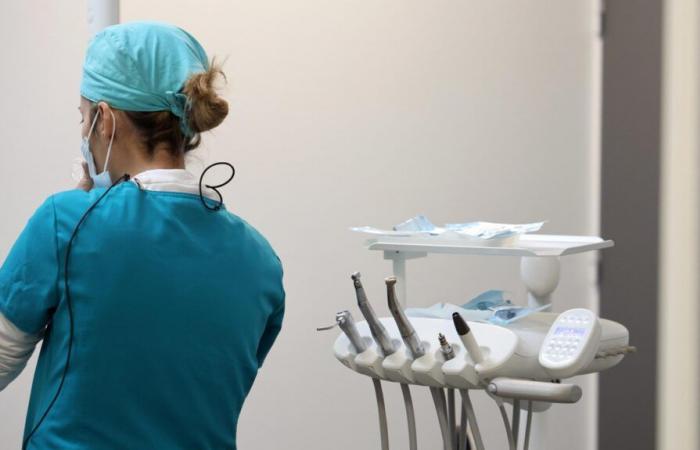It's a small revolution taking place in the cozy world of dental surgeons: for the first time from 1is January 2025, rules will limit the installation of professionals in certain already well-endowed areas, in an attempt to resolve the imbalances.
The inequalities are blatant: in France, 65% of municipalities, often in rural areas, are “very under-resourced” in dental surgeons according to Cartosanté, the digital tool of the Ministry of Health. Conversely, 3% of them, often in metropolitan areas, are “very endowed”and 0.2%, or 77 municipalities, are even over-endowed.
Among these 77 municipalities are the beautiful districts of western Paris, the 2e3e et 6e Lyon districts, or the cities of Strasbourg, Anglet and Neuilly-sur-Seine. This list is set to grow, as data from the Provence-Alpes-Côte d'Azur region and overseas territories have not yet been communicated.
A measure “understood” by the profession but which “annoys” students
It is these latter municipalities which are affected by the measure: on 1is January 2025, Health Insurance will refuse any new agreement for a dental surgeon, except to replace retirement or cessation of activity.
Clearly, a practitioner who opened a new practice in Strasbourg could certainly treat his patients there, but they would not be reimbursed.
A few days before its entry into force, this new regulation does not seem to frighten professionals already established.
“This responds to a logic that is understood by the entire profession”assures David Lafond, vice-president of the Regional Council of the Order of Dental Surgeons of the Grand Est, who himself practices in Strasbourg.
“And then it will not be impossible to set up: this involves taking over a practice, knowing that there is a large turnover of practitioners to be expected. Here, many dentists are retiring”he assures.
But among students and young graduates, the measure is less well accepted. “For us, it is the beginning of a coercive systemannoys Ralitsa Androlova, president of the National Union of Dental Surgery Students (UNECD). This system puts an end to the freedom of installation, while one engages in these studies to exercise a liberal profession. »
Installation aids
The measure results from an agreement between Health Insurance and the two main dental unions FSDL (Federations of Liberal Dentist Unions) and CDF (Dental Surgeons of France), which represent more than 95% of the profession.
“If we could have avoided these provisions, we would have been delightedadmits Julien Cardona, deputy secretary general of CDF. But every year, the question of the constraint on installation comes up, and we realize that there is a real problem of access to care. We thought it was better to negotiate these constraints, with a more reasonable impact, rather than being imposed unilaterally. »
In return for the establishment of regulations in a few dozen French municipalities, the unions obtained a doubling of the flat-rate aid for installation in very under-resourced areas, increased to 50,000 euros.
And the map of these zones has itself been extended to cover a territory representing 30% of the population, compared to 7% previously.
“It was about time”
Ultimately, these measures “are balanced in the sense that they favor more dental surgeons than they penalize”believes Julien Cardona.
The system is also welcomed by elected officials and residents of medical deserts, who hope to see the imbalances reduced.
“It was time we took action”supports Bernard Guy, mayor of Saint-Blin (zero dentist), and president of the Association of Mayors of Haute-Marne. “In our sector it is very complicated. Diaries are full, no dentist is accepting new patients”.
“It’s a very good thing”agrees Laure Artru, co-president of the Association of Citizens Against Medical Deserts. “Nurses, midwives, physiotherapists, but also pharmacists: many health professions are subject to rules for their installation. When will the same thing happen for doctors? »she asks.
On December 3, a bill signed by 237 deputies from all sides was tabled: it proposes, as for dentists, to authorize a doctor to set up in an area where the provision of care is already sufficient only when A practitioner of the same specialty ceases his activity there.






